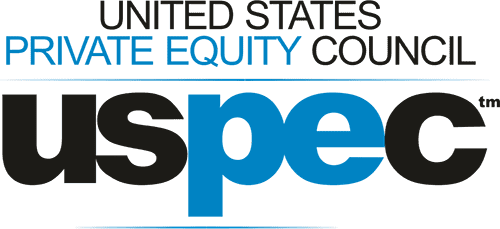Private equity has seen significant changes due to constant pandemic pressures, and the changes aren't finished. According to research firm McKinsey, "The pandemic is much more than an epidemiological event; it's a complex of massive disruptions." In the case of private equity (PE) companies, the disruptions could appear in the form of anything from increasing expectations of clients to changing remote work environments. As with other industries that are forced to change as per the demands of COVID-19, there's a growing awareness among private equity C-suites that community-minded initiatives are essential for long-term achievements.
Simply put, a rising tide lifts all boats; however, in an industry driven by collaboration and competition, what do these sea changes be like for CFOs?
A multi-layered PE initiative that begins with new approaches to operationalization and expands to include the creation of best practices shared by all and provides the highest benefit through anonymized data and efficient business spending management. Here's what you should be aware of.
Forging collective intelligence
The Harvard Business Review (HBR) reported that the PE industry has to determine their investment "sweet place" to maximize their returns and offer value to their customers. Working on all cylinders, PE firms have become a force to be considered. Indeed the HBR points out the fact that "Private Equity. The word itself remains a source of admiration jealousy and - for the CEOs of many public companies fears." However, in a world that is being flipped upside down due to shifts towards remote work and the rapidly changing market value, Many companies have difficulty finding and maintaining their sweet places. In the current investment norm, companies must figure out ways to think out of the box. It starts with the collective wisdom.
In their most recent PEI speech, " Unlocking the strategic potential of spending," CPO of Coupa Michael van Keulen and WestView Capital General Partner Greg Thomas discussed the value of community insights and the importance of analytics to help firms find key insights, make optimal investments, and implement strategies for sourcing excellence.
The issue? Sourcing intelligence at scale. While many businesses have a good understanding of market trends analysis offered by well-known research firms and have invested significant capital in technologies like CRM (CRM) and enterprise resource planning (ERP) tools, many aren't aware of the benefits of anonymized spending data that is scalable.
Recognizing the importance of procurement as a key element for digital transformation and the digital age, in 2020, WestView Capital made a strategic investment in The Shelby Group.
Businesses can go beyond cost reductions to improve visibility, control risk and boost resilience in the supply chain to boost the bottom line and top-line performance.
When applied at a larger enterprise level, BSI data can help PE firms improve the efficiency of their expenditure management processes required to be successful in the post-pandemic world. This is possible due to three crucial data attributes.
-
Anonymity The growing concerns regarding private and corporate data privacy make anonymity essential to ensure that PE companies make an informed strategic decision. Anonymized data collection gives companies a crucial competitive advantage by reporting spending sentiment without being overly specific.
-
Aggregation tiny data sets can be a poor strategy, as they're equally likely to have outliers as actual trends. Data aggregation provides greater confidence for PE companies in making crucial spending and investment decisions.
- Application, The data on spending is useful only if it can be used immediately and on a massive scale. BSI gives current insights and three-to-six-month sentiment information to aid PE companies to make informed choices that are reliable throughout.
Capital suggestions for capitalization
Although markets are expected to recover in the long term, the current forecasts suggest an accelerated decline in PE investment. According to data released by Standard & Poor, more than 35 per cent of North American private equity firms surveyed believe that investment activities will decrease by 25-50 per cent in the next few months. This means that firms need to develop new strategies to remain afloat in the next few months until market gains occur.
This is evident if it occurred recently, Private Equity International (PEI) Operating Partners Forum Virtual Experience 2020. Live-streamed on December 1st & 2nd of 2020, the forum was focused specifically on "plans and actions to take at an important time in the history of mankind to address the current economic downturn and to rethink strategies to increase growth using technology." The forum featured a myriad of sessions that covered issues ranging from technology due diligence to sophisticated analysis and activating digital leaders and leaders; the PEI presentation clarified that private equity firms need to find new ways to address the challenges of the market.
Practically, the most effective recommendations include:
-
Maximizing the talent as noted by the global consultant company Korn Ferry the growing PE competition implies that "firms are focusing on their talent to boost profits." As top talent is becoming scarcer in the market and companies, need to find ways to seek out opportunities in-house for top managers to expand their opportunities in their portfolios as often as possible.
-
Moving beyond capital - While capital is still the foundation of private equity firms expanding beyond capital to provide customer-first and value-added services can make PE companies stand apart.
-
Enhancing the integration of marketing and sales - Sales and marketing efforts are essential in boosting market share overall. However, they've historically been just one (or) steps away from more direct investments. But, as consumers' expectations rise, there's a greater demand for better integration between marketing, sales, and investment teams to ensure that any marketing campaigns focus on the right markets.
-
Making preferential vendor programs - Preferential vendor programming is a way to reduce costs and simplify operations for PE companies. Companies must evaluate the current value of their vendors, determine the best performers, and then develop programs that allow for scaling up.
Finding common ground
The next step in achieving equilibrium in private equity? Common ground. It has always been difficult for private equity firms due to the fierce competition in the investment market. Finding and securing the key stakes in both public and private companies before competition is the basis for operational performance. But the current economic climate opens the possibility of "coopetition", which is an acronym for "cooperation" as well as "competition", which aids all businesses in achieving success.
In actual practice, this means establishing more standardized procedures and policies that will benefit the whole industry. The most common ground conditions are:
-
Carbon copies A consistent revenues require replication processes and procedures that define the operational boundaries and client interactions to ensure continuous performance. While each client is unique and needs special advice for investors from different market verticals, PE firms must establish repeatable processes that allow them to begin strong regardless of which sector their client is in. In this case, establishing industry-wide best practices will achieve success at a large scale by offering a solid base.
-
Open conversations -historically, PE firms have erred toward being cautious when candidly engaging with clients. With the current state of affairs, However, this tactic that is a bit aloof won't pay dividends on a large scale. The reality is that firms cannot be trusted to claim that PE is just like any other business since it's far from a typical business. Instead, they must agree on transparency with clients regarding the possibility of market volatility or losses to reduce expectations and build a crucial level of confidence. It is part of the wider PE strategy of being transparent about the potential risks and risks; this strategy can assist in levelling the playing field and provide every private equity firm with an opportunity to win.
-
Collaborations between corporate entities In PE, like life, there's no free lunch or at most, it's the standard model. Contacts seeking guidance are usually removed from the list to focus on more immediate revenue-generating relationships, but the word "relationship" suggests a fresh direction for PE companies. In a world governed by the fact that nothing is guaranteed, relationships are more important than ever. Businesses looking to benefit from the experience of PE companies may be marginalized one day and present huge opportunities in the next; however, if they use the "quid pro quid pro" approach for every interaction, the chances are they'll be missing out on crucial connections as time passes. By confirming collaboration as a common basis, private equity firms could set the scene for long-term, reciprocal partnerships.
Forging a united front
The character of private equity investments is dependent heavily on competitiveness -- businesses are always seeking to attract the best people, negotiate the most profit and also be the first to identify the financial "sweet spots". Pandemics have increased the necessity for a model of the market which is trending toward collaboration.
Community development can be a means for businesses to consider the advantages of cooperation. Models, best practices, and business intelligence initiatives can help PE firms make the best use of the resources they have at their available. This shift to cooperation isn't just about levelling the playing field in the immediate vicinity but also provides the chance for companies to be different from the rest by providing service, specificity and market knowledge.
Utilizing the potential in Community Intelligence on cloud platforms, private equity firms can progress towards cooperative efforts while simultaneously setting up their own companies to be successful.
The bottom line
Pressure drives progress. While it can be uncomfortable, the most effective way to move forward for private equity firms is to unite. When the pandemic pressures finally diminish, these resilient companies will be better prepared to gain a larger and lasting market share.







